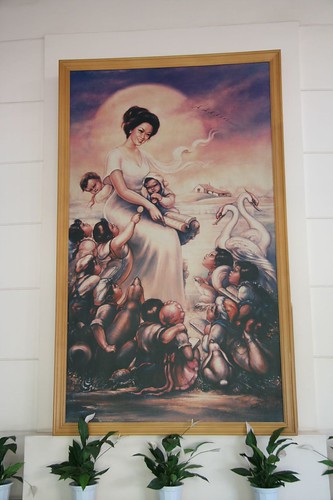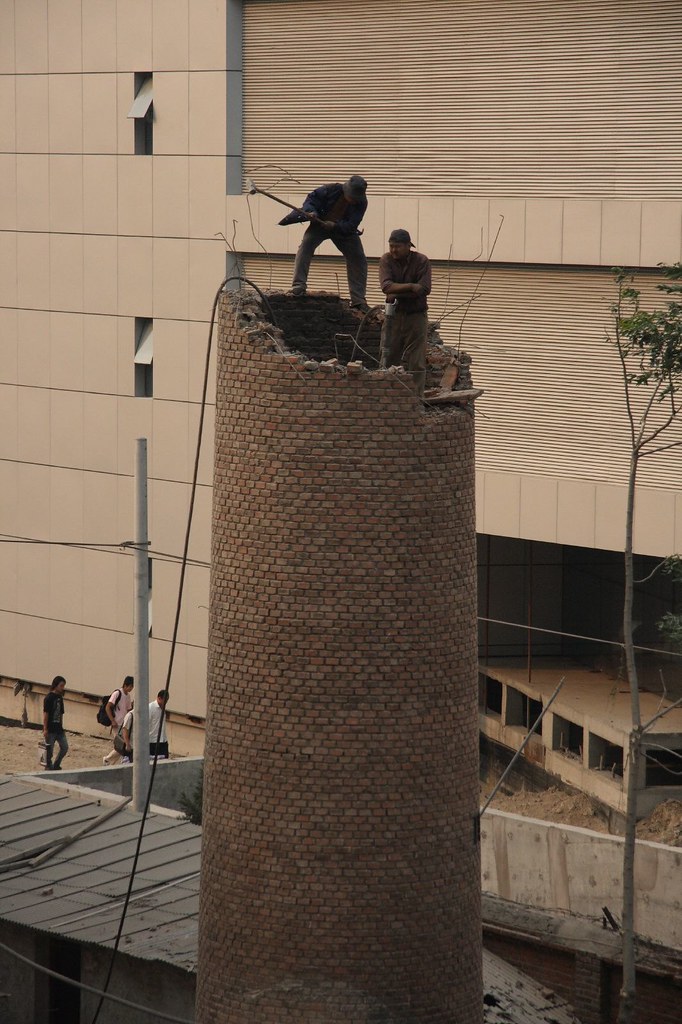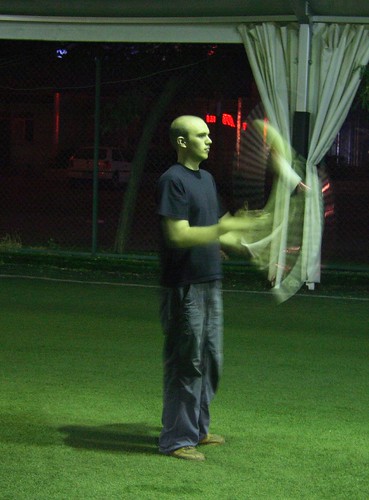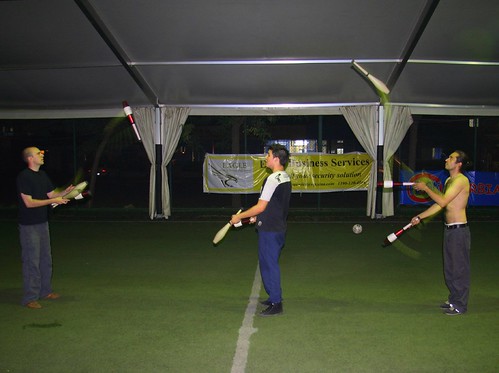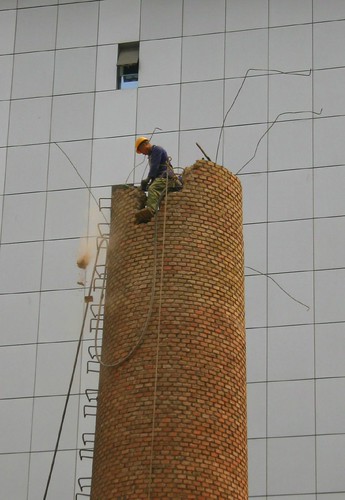More on SciTalks
I considered the potential for a video lecture repository while spending a month in sleepy Kyoto over the winter, doing research at the Yukawa institute. I discussed the possibility of setting up such a website with a friend: what capabilities would be necessary, what platform we could build it on, how people would upoad videos and what they would be able to say about them. However, lack of time and lots of research got in the way and it stayed as a project on top of the pile of other 'urgent - to be dealt with later - projects'.
I spoke, not about my plans but of the use of video lectures previously here.
Anyway, in the mean time someone else has taken the plunge and created just the platform. Currently it has a basic user interface which allows users to upload the url for a video. Each video has a section for a comment, the time and a voting system.
This is a good start but only a very basic system. I e-mailed Lee Vodra at SciTalks to pose a few of my suggestions and to see how the site would develop and I have been very impressed both with the lengthy response and the possibilities. I think that this is one of the most exciting projects in the academia/multimedia cross-over yet to come out of/onto the web - the possibilities are awesome.
Lee tells me that there is a version 2.0 of SciTalks which will implement many changes to the format and flexibility of the site. This is due to come online in a few months.
My initial questions were on the subject of a more refined system for comments where information about the level, prerequisite knowledge, audio and video quality etc. could be included with the video and added to by more multiple users for each entry. However, it seems that these are only the beginning of something much more far-reaching.
One of the biggest additions is going to be a social networking side to the site. Lee hopes that people will start to put together curricula for courses from the videos and this is really the basis for a powerful form of open-source education. Something which MIT has been trying for a while but because of the lack of videos in many courses, it is little better than having the books to work from.
The possibility to build a list of lectures on string theory, for instance, going from the basic to the very specialised, having only the clearest presentations at each level is very exciting. I must have seen a dozen or so online lectures on string theory but the overlap was huge and trying to find just the right level was not easy. With a team of interested students and academics watching videos from around the world, the appropriate lectures should soon be sieved through.
In my e-mail to Lee I mentioned tagging and the fact that I find the use of folders, both on my desktop and on the internet an inefficient form of data storage. Lee commented:
'User tagging and RSS feeds are the two most common requests so far. I'd love a tag cloud. (I'm fond of them anyway, and yes, folders feel outdated.)'
On the topic of a more organic user-oriented site Lee states that:
Once social networking gets into the mix, the site and its community could turn into something amazing, and I'm sure people will use it in ways we can't even imagine, although I'd really like to see online schools form up. Meanwhile, I'd be really psyched if you'd join and put together a playlist. If you have a bunch of videos that we haven't got together on the site, you can just send an email with a bunch of URLs and I'll see that they get up there.)
-------
There's a whole science to social networks and with each one we build, it becomes a deeper and more nuanced endeavor. I have some videos saved up for when we switch over that deal with social network design. There's a lot to consider and the devil's in the details.
So, please help to spread the word about this and see that it is used and developed in the most effective ways possible. I've sent a list of many links to them but I'm sure there are many that I don't know about so get posting.

